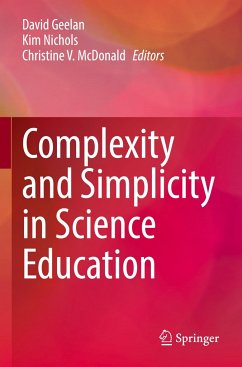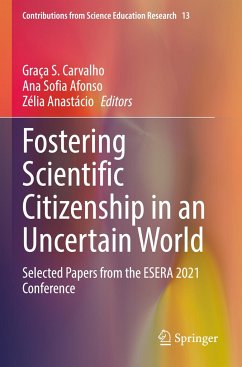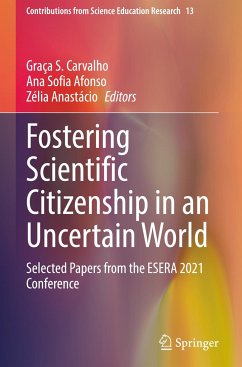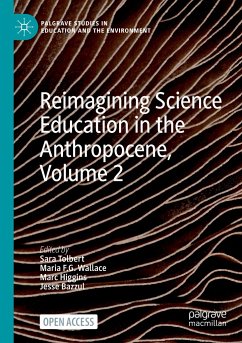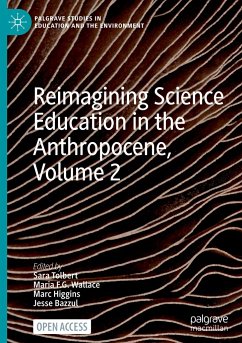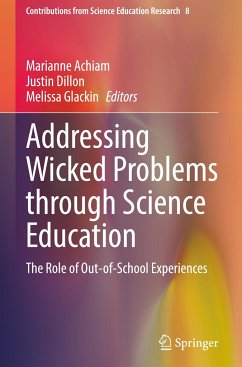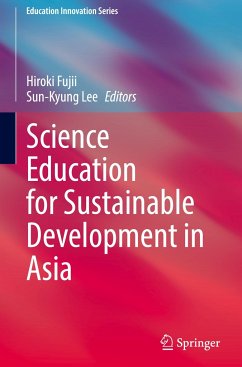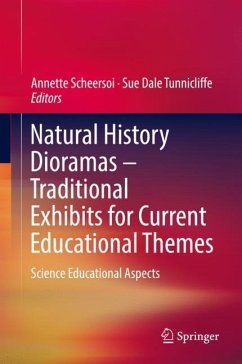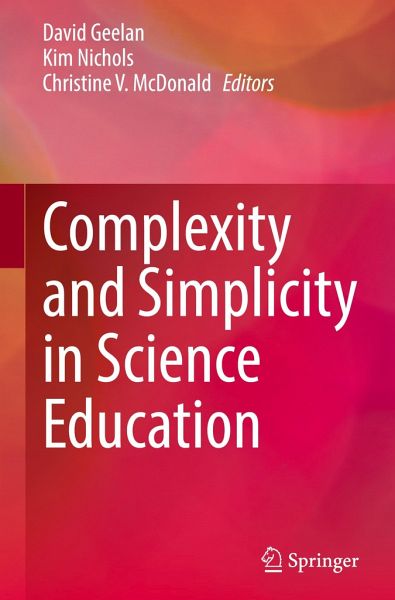
Complexity and Simplicity in Science Education

PAYBACK Punkte
53 °P sammeln!
This edited volume brings together a broad range of international science education studies, focusing on the interplay of teaching and learning science. It recognizes the complexity present in today's education, associated with major science related issues faced by society, such as climate change, diseases and pandemics, global conflicts over energy, food and water.The studies discussed in this volume are focused on presenting different opportunities to teach these convoluted matters in order to find simplicity within the complexity and make it accessible to learners. They bring together the c...
This edited volume brings together a broad range of international science education studies, focusing on the interplay of teaching and learning science. It recognizes the complexity present in today's education, associated with major science related issues faced by society, such as climate change, diseases and pandemics, global conflicts over energy, food and water.
The studies discussed in this volume are focused on presenting different opportunities to teach these convoluted matters in order to find simplicity within the complexity and make it accessible to learners. They bring together the challenges of preparing the students of today to become scientifically informed citizens of tomorrow.
The studies discussed in this volume are focused on presenting different opportunities to teach these convoluted matters in order to find simplicity within the complexity and make it accessible to learners. They bring together the challenges of preparing the students of today to become scientifically informed citizens of tomorrow.





